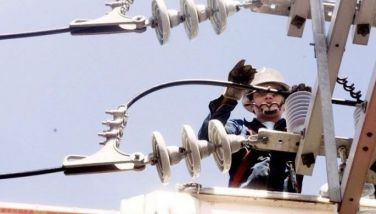The new PSA

A few months before the end of his term, President Duterte approved a new measure which, coupled with the right business environment, can help boost the country’s economic development by attracting new investments.
This is the much-delayed amendment to the archaic Public Service Act (PSA).
In the old PSA under Commonwealth Act 146, the term “public service” includes common carriers, those that own, operate or manage ice plants, irrigation systems, gas, electric light, heat and power, water supply and power, petroleum, sewerage system, wire or wireless communications systems, wire or wireless broadcasting stations, and other public services. But nowhere does it mention the word “public utility” nor does it identify which public service is classified as a public utility.
The word “public utility” has been used interchangeably with “public service” and vice-versa, albeit erroneously.
Our jurisprudence is replete with definitions of what a public utility is. Unfortunately, these definitions are the same as that of public service. Other laws have also classified service industries and business as public utilities.
The 1987 Constitution imposes a number of restrictions on public utilities. Aside from the 40 percent maximum foreign ownership of the outstanding capital stock and entitled to vote (full beneficial ownership must be in the hands of Filipinos as held by the Supreme Court in the case of Gamboa vs Teves), their franchises shall not be exclusive in character nor for a period exceeding 50 years which can be repealed by Congress when the common good so requires.
The Constitution also requires that all the executive and managing officers of public utilities must be citizens of the Philippines and any public utility company that appoints a foreigner as an officer may be held criminally liable under the Anti-Dummy Act.
Public utilities are also subject to temporary or permanent takeover by the State.
Public utilities have also been commonly referred to as those required to secure prior franchise from Congress or by virtue of a delegated power given to local government units. For those requiring prior congressional franchise, they need to secure a certificate of public convenience and necessity from the appropriate government agency while other public utilities as well as those engaged in public service, but not classified as public utilities, only need to get a certificate of public convenience.
As amended, the PSA now includes a listing of public services considered as public utilities and therefore subject to the various limitations and restrictions imposed by the Constitution and other laws on public utilities, including the 40 percent foreign ownership cap under the Charter.
In effect, Republic Act 11659 amending CA 146 now allows 100 percent foreign ownership of some entities engaged in public service, subject to certain limitations including those on so-called critical infrastructure.
Among those no longer classified as public utilities and therefore need not comply with the constitutional requirement on the maximum 40 percent foreign ownership of the voting capital are telecommunication companies, thereby amending the Public Telecommunications Policy Act under RA 7925 which classifies all telco entities as public utilities.
The new law defines a public utility as a public service that operates, manages or controls for public use any of the following: electricity distribution, electricity transmission, petroleum and petroleum products pipeline transmission systems, water pipeline distribution systems and wastewater pipeline systems including sewerage pipeline systems, seaports, and public utility vehicles.
However, transport vehicles accredited with and operating through transport network corporations (like those vehicles accredited by Grab) shall not be considered as public utility vehicles.
All concessionaires, joint ventures, and other similar entities that wholly operate, manage or control for public use the sectors above are public utilities… No other person shall be deemed a public utility unless otherwise subsequently provided by law.
However, RA 11659 also creates a new classification of critical infrastructure or those public services the incapacity or destruction of their systems or assets would have a detrimental impact on national security, such as telecommunications and other vital services as declared by the President.
It provides that any entity controlled by or acting on behalf of a foreign government or foreign state-owned enterprise (or one where the foreign state directly or indirectly owns more than 50 percent of the voting capital or beneficial ownership) shall be prohibited from owning capital in any public service classified as a public utility or critical infrastructure, but such prohibition only applies prospectively. However, sovereign wealth funds and independent pension of funds of such foreign state may collectively own up 30 percent of the capital of such public service.
Thus, foreign ownership of critical infrastructure such as telcos is limited to private foreign entities.
Do these public utilities needs to secure a legislative franchise?
The new law says that nothing in this act shall be interpreted as a requirement for legislative franchise where the law does not require any.
It also provides that the President, upon the recommendation of NEDA, may recommend to Congress the classification of a public service as a public utility based on a number of criteria, such as if the commodity or service being supplied, transmitted or distributed regularly by a person is of public consequence.
But what about those public services which are not classified as public utilities?
RA 11659 says that they will be considered as a business affected with public interest for purposes of Sections 17 and 18 of Article 12 of the Constitution, or the provisions on temporary as well as permanent takeover by the State.
As a requirement for the issuance of certificates authorizing the operation of public service, the relevant government agency must determine that their operation will promote the public interest in a proper and suitable manner. Likewise, any certificate authorizing the operation, management, or control of a public service shall be issued only to juridical entities that are organized under Philippine laws.
These certificates include any franchise, certificate or public convenience, certificate of public convenience and necessity, concession, or any other form of authorization for the operation of a public service, including a public utility.
No entity engaged in any public service business is allowed to engage in any such business without first securing a certificate from the Public Service Commission (now the appropriate government agencies) without first securing a certificate, except grantees of legislative franchises which are expressly exempt from getting such certificate.
The relevant agencies are likewise still given the power to fix and determine the fair and reasonable rates, which those engaged in public service can impose when the public interest so requires.
The agencies which have taken over the powers and duties of the PSC include the Civil Aeronautics Boards, Civil Aviation Authority of the Philippines, Department of Energy, DENR, DICT, Department of Transportation, Energy Regulatory Commission, LTFRB, LTO, Local Water Utilities Administration, Marina, MWSS, National Telecommunications Commission, National Water Resources Board, Philippine National Railways, Philippine Ports Authority and Toll Regulatory Board.
RA 11659 also grants the relevant government agencies that have replaced the defunct Public Service Commission the power, without the need for previous hearing, to investigate upon its own initiative or upon a complaint in writing any matter concerning any public service.
It is also now unlawful on the part of any corporation engaged in public service, or the owner, lessee or operator thereof, without the approval of the PSC after hearing, to issue any share of stock without par value.
Any sale, alienation, mortgage, encumbrance, or lease of properties, franchises, certificates by any person engaged in public service also requires prior approval after notice and public hearing. This requirement however applies only to those properties that are used and useful in the delivery of the required public service.
Any person who knowingly and willfully performs acts prohibited by the law may face imprisonment of up to 12 years, or a fine not exceeding P2 million. If the entity involved is a juridical person, then the penalty of imprisonment shall be imposed on its officers, directors, or employees holding managerial positions, who knowingly and willfully are responsible for such violation.
Also, unless provided by law or by an international agreement, a public service shall employ a foreign national only after determination of the non-availability of a Philippine national who is competent, able, and willing to perform the services for which the foreign national is desired.
Persons and companies engaged in the telecommunications business, which is now no longer classified as a public utility and therefore can now be 100 percent foreign owned although it is still considered as engaged in public service, are required by the new law to obtain and maintain certifications from an accredited certificate body attesting to compliance with relevant ISO standards on information security as prescribed by the DICT, except micro, small, and medium enterprises.
For comments, e-mail at [email protected]
- Latest
- Trending






























